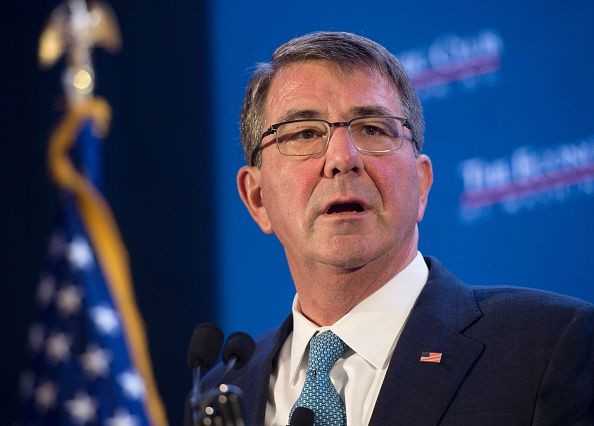2017 Defense Budget: Will The Next War Be In Europe? $3.4B Request Highlights Russian Threat

A possible next war could be back on familiar terrain in Europe, Secretary of Defense Ashton Carter warned Tuesday. Carter previewed a $582 billion 2017 defense budget that will be released in full Feb. 9, and it includes a request for $3.4 billion as part of the European Reassurance Initiative that focuses on Russian threats.
“We haven’t had to worry about this for 25 years, and while I wish it were otherwise, now we do,” Carter said, citing Russia in a speech at the Economic Club of Washington, the Associated Press reported. The U.S. is taking a “strong and balanced approach” toward the Kremlin, he added.
Russia’s ominous moves in Eastern Europe since the annexation of Crimea in March 2014 and the ensuing war in eastern Ukraine that's left more than 9,000 people dead has forced the Pentagon to refocus on Europe, with funding for the European Reassurance Initiative quadrupling from $789 million to $3.4 billion. The initiative was launched in 2014 with the stated goal to “reassure allies of our solemn commitment to their security and territorial integrity as members of the NATO alliance.”
NATO has been reassuring its Eastern European members, which are all former Soviet republics or satellite states, in recent months of its commitment to military support; the alliance’s secretary-general, Jens Stoltenberg, welcomed Carter’s remarks.
“This is a clear sign of the enduring commitment by the United States to European security,” said Stoltenberg, a former prime minister of Norway. “It will be a timely and significant contribution to NATO's deterrence, and collective defense."
After Carter’s remarks Tuesday, Russian state-sponsored media outlets were quick to point out the amount of military equipment the U.S. and its allies have in Europe. The U.S. budget is expected to upset the Kremlin, as Russian President Vladimir Putin has in the past accused NATO of encroaching on his sphere of influence.
Many facets of the proposed 2017 budget remain unknown, including which countries in Europe will receive additional troops, equipment, training and aid with infrastructure development. The funding for the European initiative is likely to come from an account meant to focus on Iraq, Afghanistan and Syria, raising doubts about a long-term commitment – a decision that will fall to the next president, the New York Times reported. President Barack Obama has been hesitant to confront Russia militarily and has sent only nonlethal military aid to Ukraine.
NATO member countries are scheduled to meet in Warsaw, Poland, in July for a summit. Poland has called for an increased NATO presence on its territory in order to deter Russia, with President Andrzej Duda saying “everything points to the need to have substantial presence of both infrastructure and military units on the ground in Central European countries.”
© Copyright IBTimes 2025. All rights reserved.






















